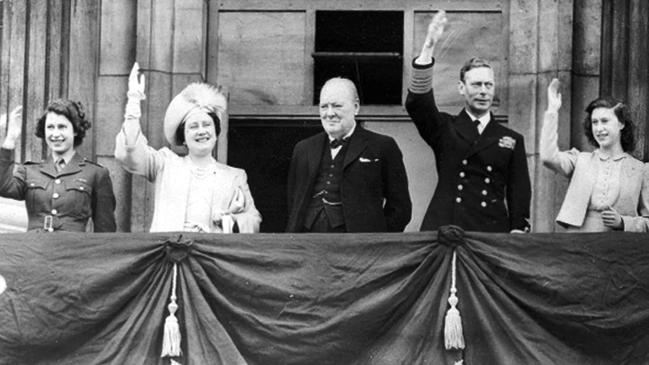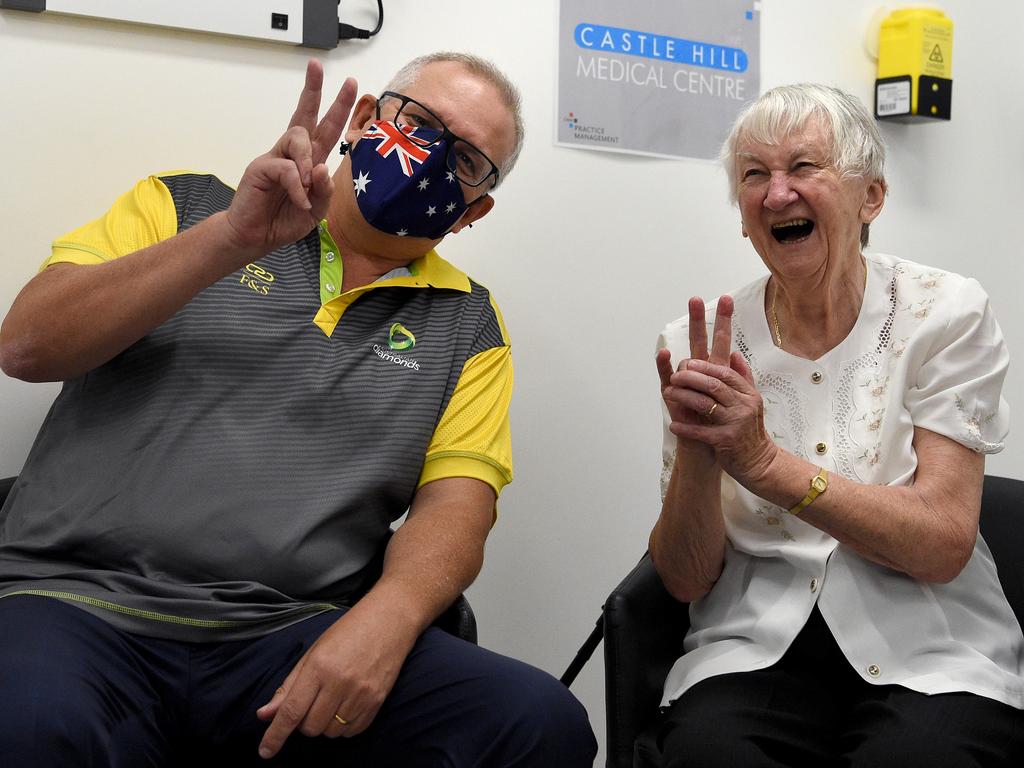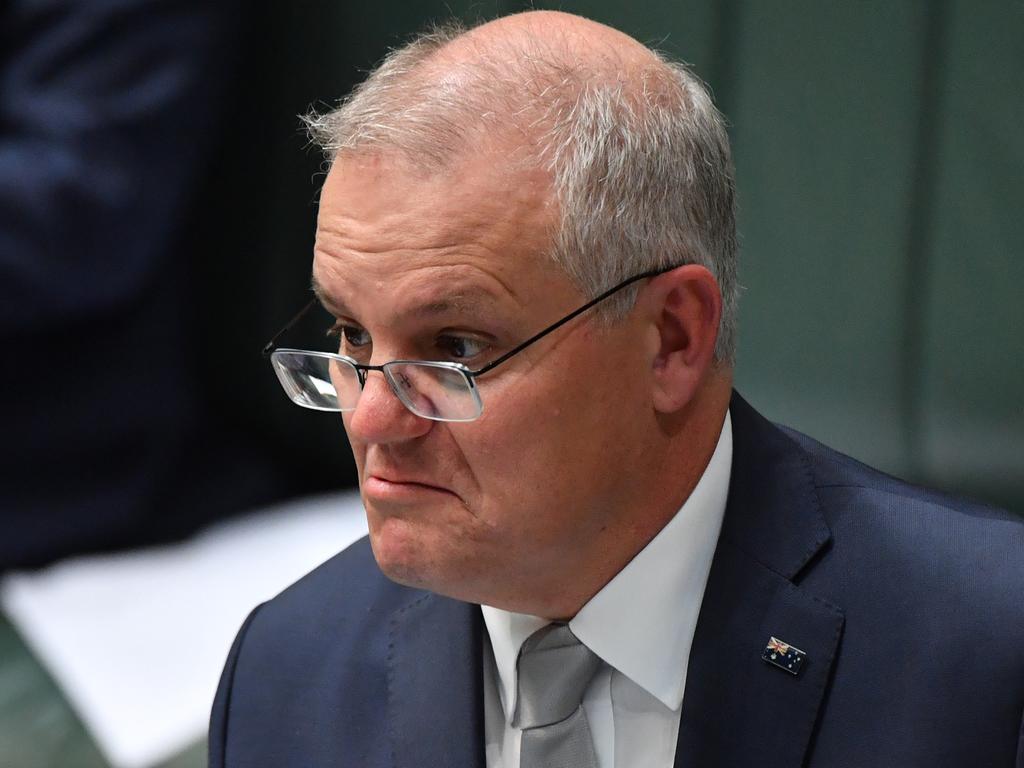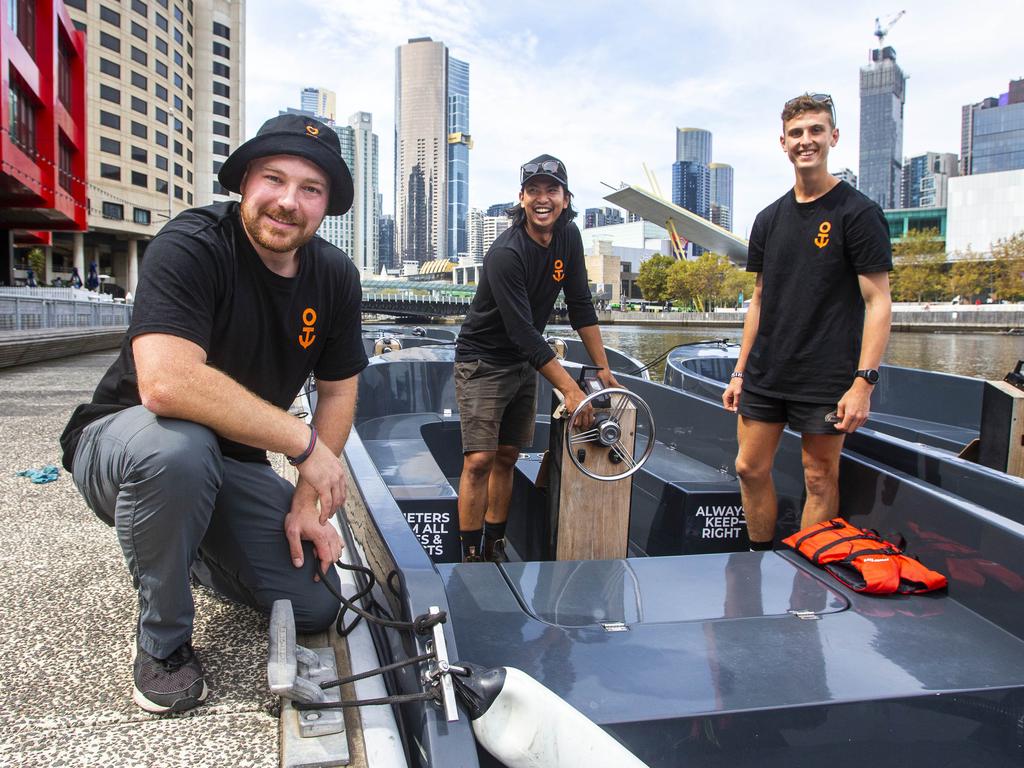Scott Morrison keeps making bad situations worse

Scott Morrison’s political epitaph threatens to be condensed into six words: “I don’t hold a hose, mate.” Those words have reverberated ever since he coined them to excuse his absence in Hawaii during the Black Summer bushfires. They have become shorthand for his perceived refusal to take responsibility, for disappearing when bad news strikes, then too often blame-shifting when things go wrong. This is not to say political necrosis has set in for Morrison. Far from it. But he has entered a dangerous phase. Unless he changes, he runs the risk of falling victim to the Churchill syndrome of winning the war then losing the recovery.
While the vaccination rollout has had a few blips, not all of the government’s making, it is violence against women that has exploded as a potent electoral issue. It is his job as Prime Minister to forge a suite of measures to address the problem, while at least sounding like he is taking it seriously, because even though every party is guilty of neglect, the allegations that triggered the movement erupted on his watch inside his own party. His task will be that much harder if he still has two people sitting around his cabinet table who have become symbols, fairly or not, of a toxic culture.
Simultaneously, the WA election has provided Liberals with a number of timely reminders. One is that Morrison is no Mark McGowan and another that Anthony Albanese is no Zak Kirkup. Albanese and federal Labor have not suffered in the way other oppositions have around the country. No one could ever describe Albanese as exciting. More importantly, though, he is not frightening. Still, it would be wrong to give him all the credit for Morrison’s slide in Newspoll. Morrison has himself to thank for most of it.
Morrison was probably right not to go out on Monday to see, and be seen by, the thousands of women gathered outside. Based on what we know of his interactions with people in difficult situations (Cobargo residents, Christine Holgate) he made the right call to stay in his office. Not only would it have taken courage to front the March4Justice demonstration, based on recent history it is entirely possible he would have made matters worse.
Hence the seemingly safer course to respond calmly in a controlled environment, by delivering a carefully worded speech in parliament, full of empathy and assurances, where at least half the audience would be on his side. What could possibly go wrong there? Plenty, as it transpired.
Anyone with half a political brain could have told him, or he should have been able to see it himself, that referencing the killings in Myanmar by saying not far from here people demonstrating were “met with bullets” would play out very badly. What was he thinking? Obviously what a privilege it was to live in a country where people could protest peacefully. Except what others heard was they should be grateful they were free to demonstrate without having the heavily armed police who patrol the perimeter of Parliament House open fire on them.
His words also failed to appreciate that women — and men — were demanding action because so many have been raped or killed at home or at work or on the streets not because they were demonstrating, but simply walking to or from wherever they needed to go.
Such cack-handedness negated any advantage he might have gained from inviting a delegation into his office to discuss their grievances. In any case even that offer misread the mood of demonstrators. Too much happens behind closed doors in politics. They wanted to be seen and heard.
Morrison has made a bad situation worse at critical points during this crisis. The defamation proceedings initiated by Attorney-General Christian Porter against the ABC and journalist Louise Milligan over their reporting of rape allegations against him have not stopped the questions.
Porter remains Attorney-General despite being quarantined from ever expanding chunks of his portfolio. It is absurd. If he retains his status as chief law officer while involved in high-profile legal action serious questions of conflict of interest will persist.
Coalition MPs keep hoping either Defence Minister Linda Reynolds, forced to apologise for calling alleged rape victim Brittany Higgins a lying cow, or Porter, or preferably both, will do the right thing and step aside, rather than wait for the Prime Minister to sack them. Reynolds may yet oblige before too long on grounds of ill health. If Porter’s seat disappears in the redistribution, he will disappear with it — eventually.
For many Liberal MPs, this has been the worst four weeks of their time in politics. Feeling bruised, traumatised and angry that they have been blamed for events that are not their fault or not within their ability to fix, many vented at Tuesday’s party meeting. The standout contribution was from WA Liberal backbencher Celia Hammond. Hammond acknowledged her colleagues had a right to feel they had been misrepresented in the media, in the community and in the parliament. But she warned people did not want this issue to be consumed by a political fight. They wanted solutions. The way to go about it, she said, quoting Michelle Obama, was “when they go low, we go high”.
Backbencher Russell Broadbent advised politicians to be quiet, listen and learn, and urged the Prime Minister to convene a summit of peak women’s organisations. Good advice all round.







It is possible for prime ministers to destroy their leadership with just a few words. Julia Gillard did it when she said there would be no carbon tax under a government she led. Soon after, she introduced one. Kevin Rudd did it by declaring climate change was the great moral challenge of our time, then baulked at calling an election over it when the Greens voted down his carbon pollution reduction scheme. John Howard said under his industrial relations policies, while everyone could be better off, no one could be worse off. Then came Work Choices.